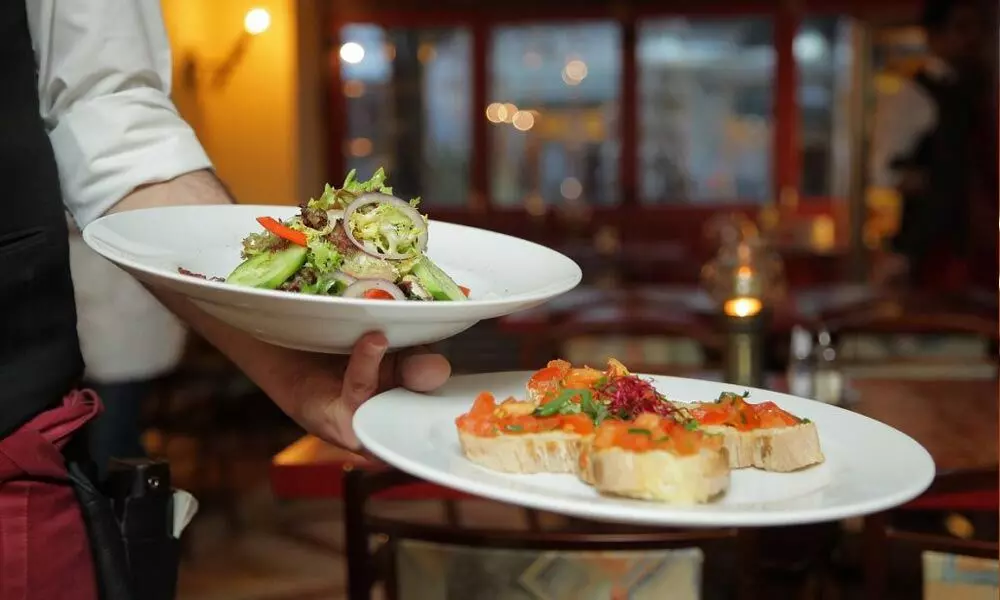How food marketing can boost hospitality and tourism industry
Food is the essential need for human being, and it may become the main motivating factor for deciding to travel
image for illustrative purpose

Tourism has become a fundamental industry for the economic growth of many countries. Due to this, there is growing competitiveness among the different destinations to attract as many tourists as possible. As a result, disciplines such as marketing have developed tools to differentiate some destinations from others and concepts such as place branding and country brand have emerged. One of the key factors forming the country brand is gastronomy, as food tourism is one way to reduce the growing problem of sustainability in tourism, as it impacts different aspects of the country's environment. However, there is a great lack of scientific works that relate both variables.
Hong Kong, which is arguably a city destination that offers unique and diverse gastronomy. The results of the study provide evidence suggesting that motivation to travel for gastronomy reasons is a valid construct. Also, the results of the data analysis reveal that gastronomy plays a major role in the way tourists experience the destination, and indicate that some travelers would return to the same destination to savor its unique gastronomy. Implications for practitioners are also discussed.
In an increasingly competitive market, destinations search for unique attributes that can provide them with a competitive advantage. A popular and promising destination attribute that can impact its competitiveness is gastronomy. Thus, the integration of local gastronomy and tourism is a critical component of contemporary destination marketing strategies.
Food has an important role in the development of tourism services, since it often comprises 30 per cent or more of tourist expenditure. Spain has become a leading gastronomic destination through the development of regional gastronomic diversity and the development of high-quality food experiences. Italy has a highly developed gastronomic landscape. In France, Sopexa has positioned itself as a benchmark agency for international marketing, specializing in food, wine and lifestyle. It has over 50 years of experience in building the reputation of the French agrifood industry and supporting the branding of France as a gastronomic destination. In Latin America, culinary heritage is now being recognized as a potential area for the development of sustainable tourism, which can be particularly important in generating income for local communities.
Good cuisine is interesting for everybody, as they all want to try good and tasty food. Many people travel just for gastronomic purposes. Food is the essential need for human being, and it may become the main motivating factor for deciding to travel. So the phenomena of gastronomy and its role in tourism are worth exploring.
Food has an important role in the development of tourism services, since it often comprises 30 per cent or more of tourist expenditure. Spain has become a leading gastronomic destination through the development of regional gastronomic diversity and the development of high-quality food experiences. Italy has a highly developed gastronomic landscape. In France, Sopexa has positioned itself as a benchmark agency for international marketing, specializing in food, wine and lifestyle. It has over 50 years of experience in building the reputation of the French agrifood industry and supporting the branding of France as a gastronomic destination.
Approximately 70 per cent of respondents have already targeted gastronomy tourists as a market segment; however, only 10 per cent of them believe that gastronomy tourism has enough promotion in the destination. 65.5 per cent believe that it is being promoted, although insufficiently. More specifically, 46.5 per cent have a gastronomy tourism strategy in their respective destination's tourism action plan.
The main conclusion is that gastronomy may promote tourism and countries which have gastronomic heritage, should evaluate it and include it in touristic offers by making a gastronomic brand of the region or country. Countries should have a gastronomic tourism development plan.
In 2019, before the pandemic hit us, culinary tourism was valued at around Rs 83 lakh crore globally – it is expected to grow with a CAGR of 16.8 per cent by 2027. The prospects indeed seem bright.
Tourists enjoy indigenous food, particularly items of local or ethnic nature. Furthermore, knowledge of the local, regional, and national cuisine has become an interest for tourists. The concept of consuming local food or drink is considered first-hand cultural experience, and it is on top of the tourist attraction list. In India, the promotion of food as a component of its destination attractiveness is in the budding phase.
The future of culinary tourism in India is absolutely bright and welcoming! With the present inbound foreign travel restrictions, this is more of an educating phase of displaying possibilities. It is like an investment that will pay later. This is the time to motivate the traveler to embark on the next journey and into the world of culinary tourism.

